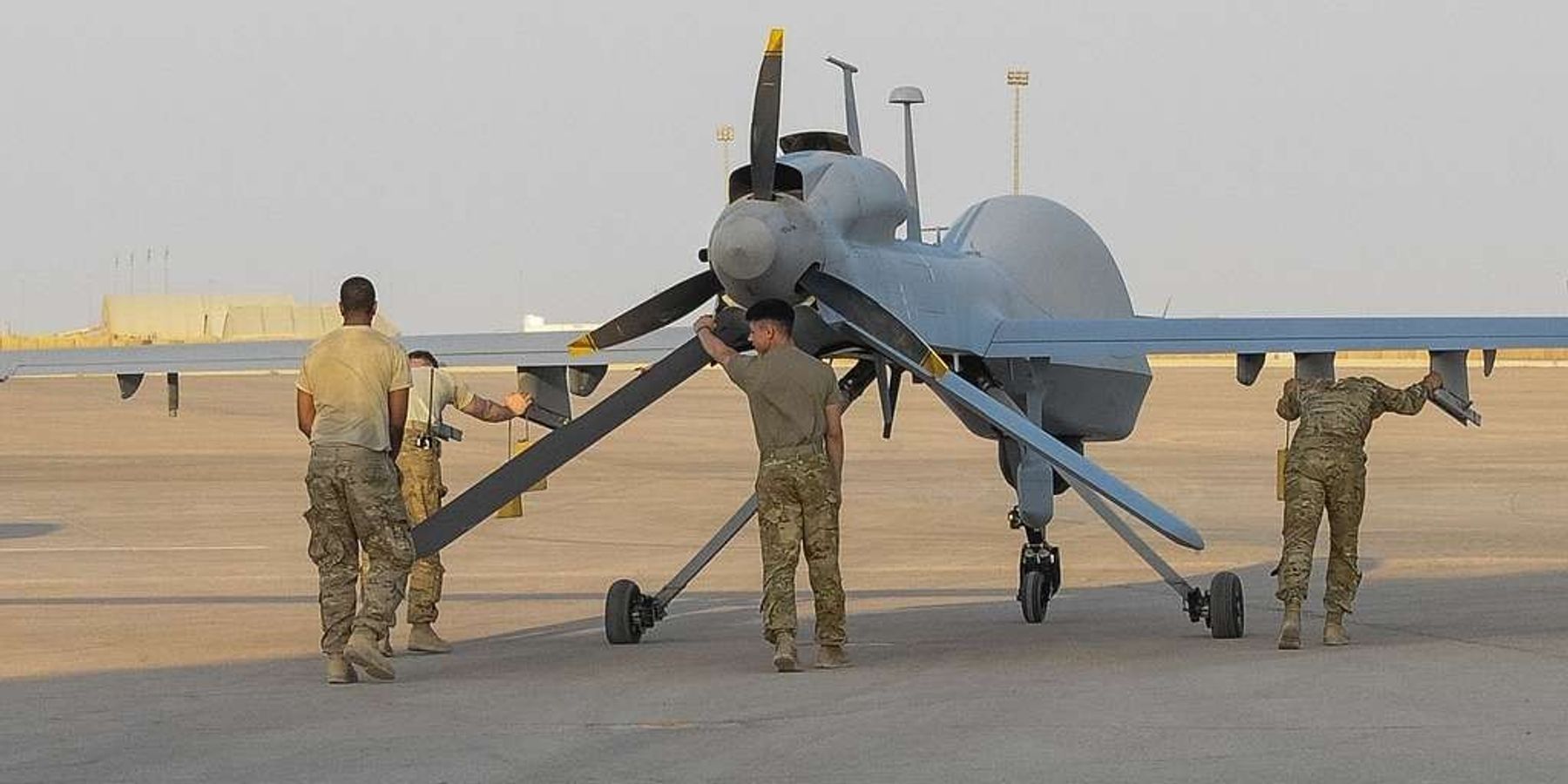The U.S. military says it is still weighing its response to a rocket attack on the al-Asad base in western Iraq on Monday. Five U.S. personnel were injured, including one seriously, according to reports.
"Base personnel are conducting a post-attack damage assessment," one of the base officials told reporters, suggesting that the casualty count could change. Two Katyusha rockets were fired at the the base, and one reportedly landed inside. This was the site of the 2020 militant attack following the U.S. assassination of Iran's top military commander Qassem Soleimani in Iraq in 2020. Some 100 American service members were diagnosed with brain injuries after that incident.
The U.S. still has 2,500 troops in Iraq though there has been official talks in recent weeks over efforts to draw them down. However, attacks by Iran-backed militants on the American bases resumed two weeks ago as tensions continued to escalate between Israel and Hezbollah. The U.S. then launched its first airstrike in Iraq in months targeting militants it said were about to launch an unmanned drone in Musayib, north of Baghdad.
The recent attacks add to the 165 incidents on Americans in Iraq and Syria since Israel's war on Gaza began. The U.S. has about 900 troops still in Syria.
U.S. officials are expecting the worst as Israel conducted a series of Hamas and Hezbollah assassinations, including a top political leader, in Tehran, last week. Secretary of Defense Lloyd Austin had a call with his counterpart Yoav Gallant in Israel Monday night to discuss what he called a "dangerous escalation."
"We agreed the attack from Iran-aligned militias on U.S. forces stationed at Al-Asad Airbase in western Iraq marked a dangerous escalation, and I updated Minister Gallant on measures to strengthen U.S. military posture in light of this escalating situation," Austin posted on X.
While Washington invariably claims our troops are there to confront ISIS remnants and/or Iranian proxies, critics say there is no strategic value to remaining in the region, that these troops are caught in the crossfire of a regional conflict. "Shooting rockets at U.S. bases is a time-tested way for Iran and its proxy militias to harass the Americans whenever the heat rises," charged Defense Priorities analyst and writer Dan DePetris on X shortly after the latest attacks were reported. "They can dial the pressure up or down depending on the circumstances. Removing U.S. forces would remove that card."
- US troops in Iraq and Syria aren't 'keeping the peace' ›
- Bring US troops home from Iraq and Syria now ›
- Attacks on US troops in Middle East resume ›
















